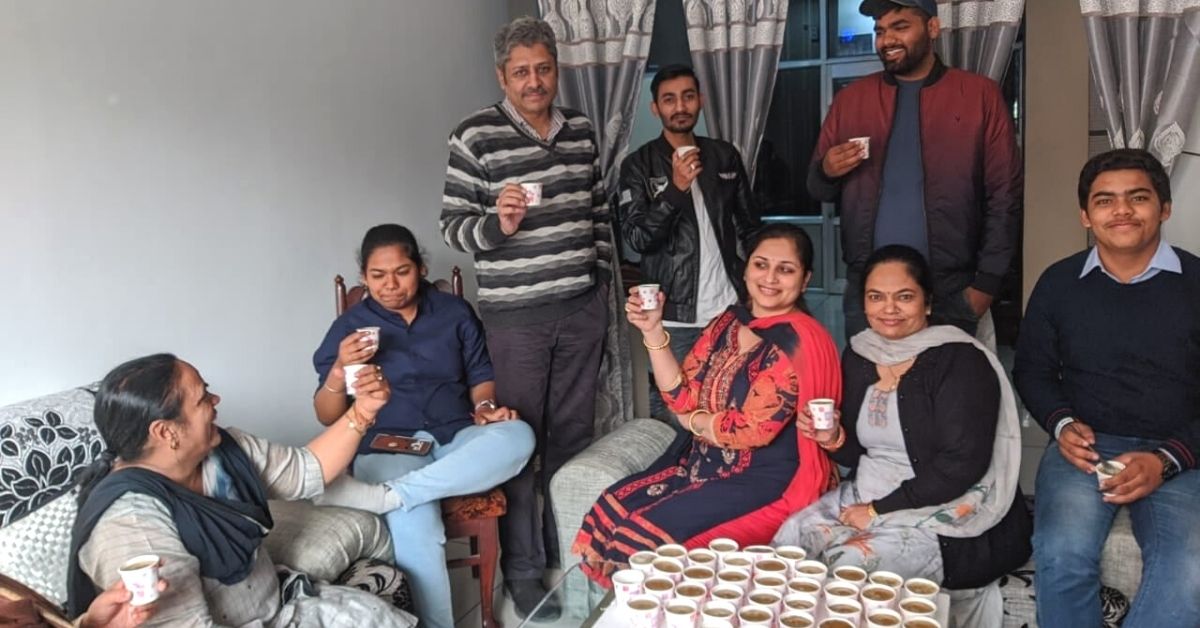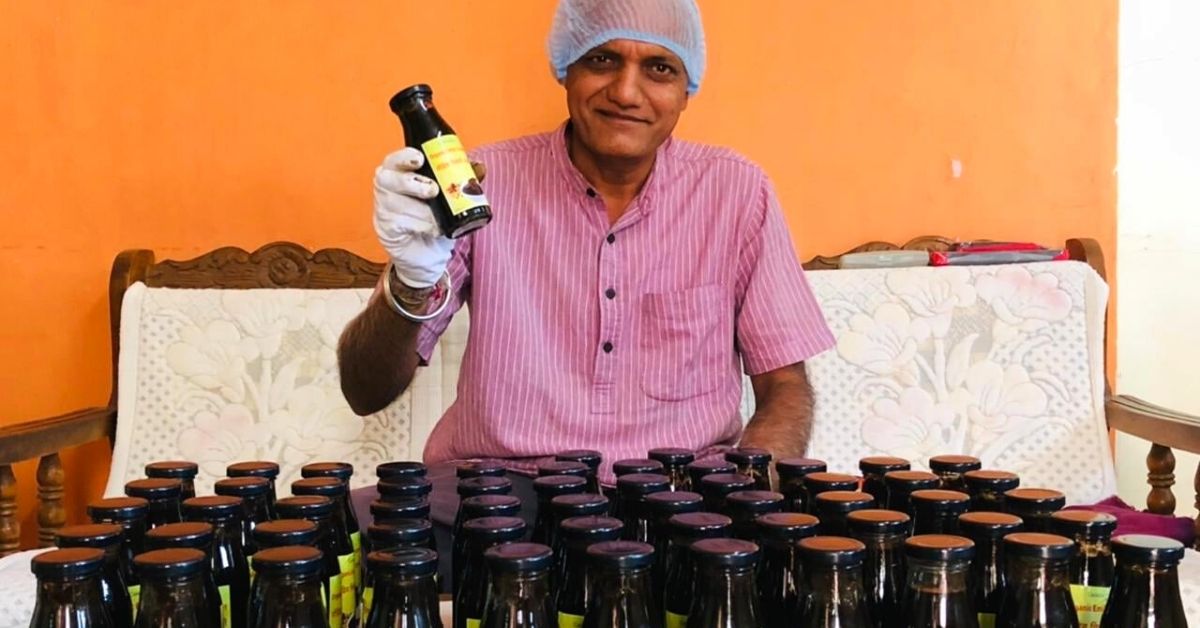Can you imagine tasty Indian street food like pani puri, jalebi, tea or even popsicles made from sugarcane juice? The products seem surreal beyond the traditional derivatives jaggery and sugar.
However, Ambala based engineer Vipan Sarin has succeeded in developing a sugarcane business that helps farmers become microentrepreneurs in Haryana.
However, the journey to create such products did not begin with sugarcane in focus. “It started in 2018 when my brother and I wanted to provide better quality milk for the family. We bought a cow to fulfil the dairy requirements of our family,” Vipan tells The Better India.
An innovator by profession, Vipan says the move benefited the family and made him take a step ahead and switch to a healthier lifestyle to practise organic farming methods. “I wanted to follow a chemical-free lifestyle. To promote healthy food, I also started supplying organic vegetables to nearby markets and Mumbai in Maharashtra for free,” he adds.

However, he realised that the organic market had its challenges, and like him, many farmers were experiencing the same.
“The organic vegetable market had niche customers, and not all farmers could succeed in tapping the market. Organic vegetables are costlier compared to their counterparts grown using chemical fertilisers and pesticides. To make organic farming feasible and market-friendly, I devised an 80-20 percentage [business] model,” he says.
Vipan experimented and suggested farmers grow sugarcane on 20 per cent of their land and use the remaining to cultivate organic vegetables.
“Sugarcane is a lucrative crop that earns a good income. The farmers growing organic vegetables could then offer their products at a lower price with the sugarcane crop compensating for the cost deficit,” he explains.
To boost farmers’ income further, Vipan began working closely with them to create value-added products. “Making jaggery and sugar from sugarcane requires heavy machinery, and farmers are at the mercy of cooperatives and the rates offered by them,” he says, adding, “But the farmers can benefit if they can directly use their products to create value-added products.”
To use sugarcane juice by value addition, he created slushies, popsicles, tamarind chutney, jalebi, pani puri and other products.
In 2020, he set up a company with three other co-founders, CD Kumar, Sumit and Swati Sonar under the name Celebrating Farmers Edge International Pvt. Ltd.
“We connected via social media with a common aim to benefit the farmers. The co-founders identified 40 farmers in Pune and more from other parts of Maharashtra to produce the different products. We collaborated with startups who helped the farmers with packaging, marketing and finding innovative solutions for cold storage and transport of frozen products,” he says.
And the efforts have already started reaping results for the farmers.

Nashik based Rajendra Shinde is one of the farmers who has benefitted from using sugarcane to create tamarind chutney. “It is traditionally made from jaggery, tamarind, water and spices. I replaced the jaggery by sourcing sugarcane juice directly from the farmers. My production cost reduced by 50 per cent as I was using the raw ingredient and not purchasing jaggery from the market,” he says.
Rajendra says that his profits also increased by 30 per cent. “Farmers cannot produce jaggery, but sugarcane juice can easily be extracted. The taste and quality of the tweaked product do not change and are accepted in the market,” he adds.
Swati Sonar, one of the co-founders, claims that such initiatives will help farmers gain control over the price of sugarcane and give them the ability to receive the profits they deserve. “We are exploring opportunities for projects which can evolve in the future using bagasse to make papers or biofuel for additional profits to the farmers,” she adds.
Vipan wants to create hundreds of thousands of such micro-entrepreneurs across India. “I aim to reach out to at least 10 lakh farmers in the coming years and help them progress,” he says.
He adds, “The farmer who feeds the citizens of this country should be satisfied and enjoy their work. It is only when everyone in the community is happy that the country can progress.”
Edited by Yoshita Rao
The above news was originally posted on www.thebetterindia.com





